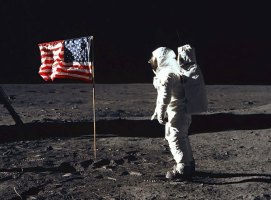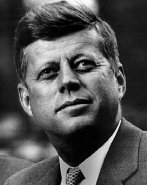 Everyone loves a good conspiracy theory. People love to debate and give reasons as to why a certain event couldn’t have gone down in history the way textbooks, or the government, want us to believe. There’s an element of pride in being able to see through the apparent lies we’ve been told and a feeling of success in having “cracked the case,” even if it’s not on the official record. I also believe that people has an inherent desire to impart meaning to random circumstances, making superficial connections between unrelated events. I really believe it’s in the human nature to attach such meaning in order to rationalize and categorize events that occurred that often lack a clear or definitive result.
Everyone loves a good conspiracy theory. People love to debate and give reasons as to why a certain event couldn’t have gone down in history the way textbooks, or the government, want us to believe. There’s an element of pride in being able to see through the apparent lies we’ve been told and a feeling of success in having “cracked the case,” even if it’s not on the official record. I also believe that people has an inherent desire to impart meaning to random circumstances, making superficial connections between unrelated events. I really believe it’s in the human nature to attach such meaning in order to rationalize and categorize events that occurred that often lack a clear or definitive result.
Some of the more memorable and frequently debated conspiracies:
- 9/11 (with the anniversary coming up, I’m sure we’ll be hearing more on this soon)
- Pearl Harbor (my personal favorite, yes I’ve fully embraced my history nerd status)
- The JFK assassination
- Roswell
- Apollo Moon Landing
Perhaps the most famous conspiracy theory that is still hotly contested is that of the Apollo Moon Landing in 1969. And the passing of Neil Armstrong a few days ago seems to have thrust this conspiracy theory right back into the spotlight.
If you haven’t heard of this one before, the conspiracy theorists believe that instead of walking on the moon, Armstrong merely walked on the set of an elaborate photo shoot. Theorists will say that the entire operation was staged by the American government to induce patriotism and nationalism coming out of the Cold War and entering the space race with the Soviet Union.
And the evidence? Believers will point to the shadows in the pictures and insist that they aren’t real and that there’s no way the American flag could flutter in the breeze since there is no wind on the moon (is this true, no wind on the moon?). Believers will also go so far as to insist that the samples taken from the moon and other tests that were conducted were all fakes, designed to fool America and the rest of the world.
But what does this mean for historians? I guess that depends on where you stand in relation to each conspiracy theory, or even all conspiracy theories, if you choose to look at them as a whole. I do believe that ignorance feeds ignorance and when everyday people aren’t properly informed, untruths can circle around and fester into apparent government coverups. It should ultimately be the goal for a public historian to help the public close that information gap to help prevent misinformation from occurring and spreading around like wildfire.

Hilariously, I just ran into someone doing their PhD on Roswell and the sorta kitschy community that has sprung up around this particular conspiracy theory. Interesting post, Tasha!
Thanks, I find the psychology behind them to be so intriguing!
I was so shocked when I heard multiple people on the radio saying how stupid people were to believe that the moon landing was real and how Neil Armstrong went to his grave as a liar.
Reblogged this on Practically Historical.